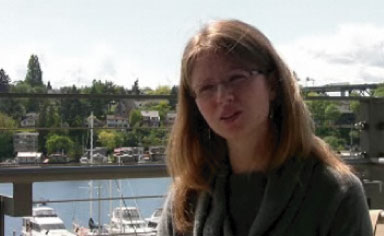|
|||
OACIS has several collaborators: COSEE OLC, Ocean Inquiry Project, San Juan Nature Institute, Seattle Aquarium, and the Whale Museum. "SoundCitizen's work provides a great springboard for enhancing core knowledge about ecosystems and environmental change and sustainability at the high school level," says Rick.
One collaborative product is the My Place in Puget Sound curriculum, developed by COSEE OLC PIs Carrie Tzou and Philip Bell and others from the College of Education, OACIS grad students and teachers, SoundCitizen staff, and COSEE OLC team members. The curriculum has been field-tested in four different Seattle-area schools and includes content drawn from SoundCitizen and COSEE OLC. "The idea is that the curriculum is place-based and acts as a catalyst for bringing together new ideas for treating our local environment sustainably," says Rick. The culminating piece of the My Place in Puget Sound curriculum was when participating high school students presented posters to UW ocean scientists, learning scientists, and other students and teachers who were involved in the development of the curriculum.
"Grad students become better communicators, they follow through on their commitment to engage with society, and teachers get exposed to very high level scientific thinking," says Dr. Daniel Grünbaum, Associate Professor in Biological Oceanography and Co-PI on OACIS. "Students get the benefits of both - they see real scientists and understand their motivations, and get the benefit of learning how to think like real scientists. Future students get the benefits of teachers having been exposed to rigorous scientific thinking."


